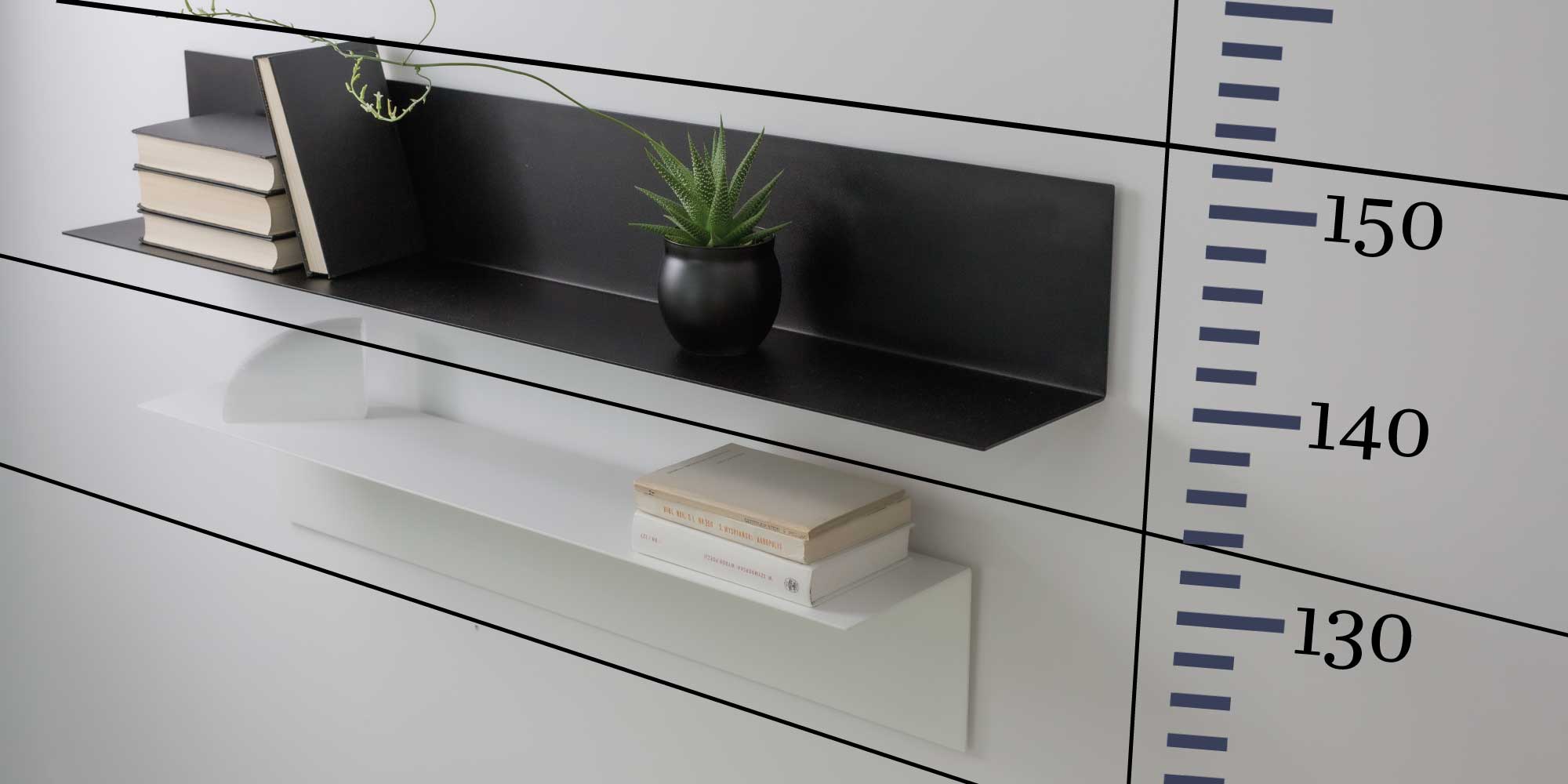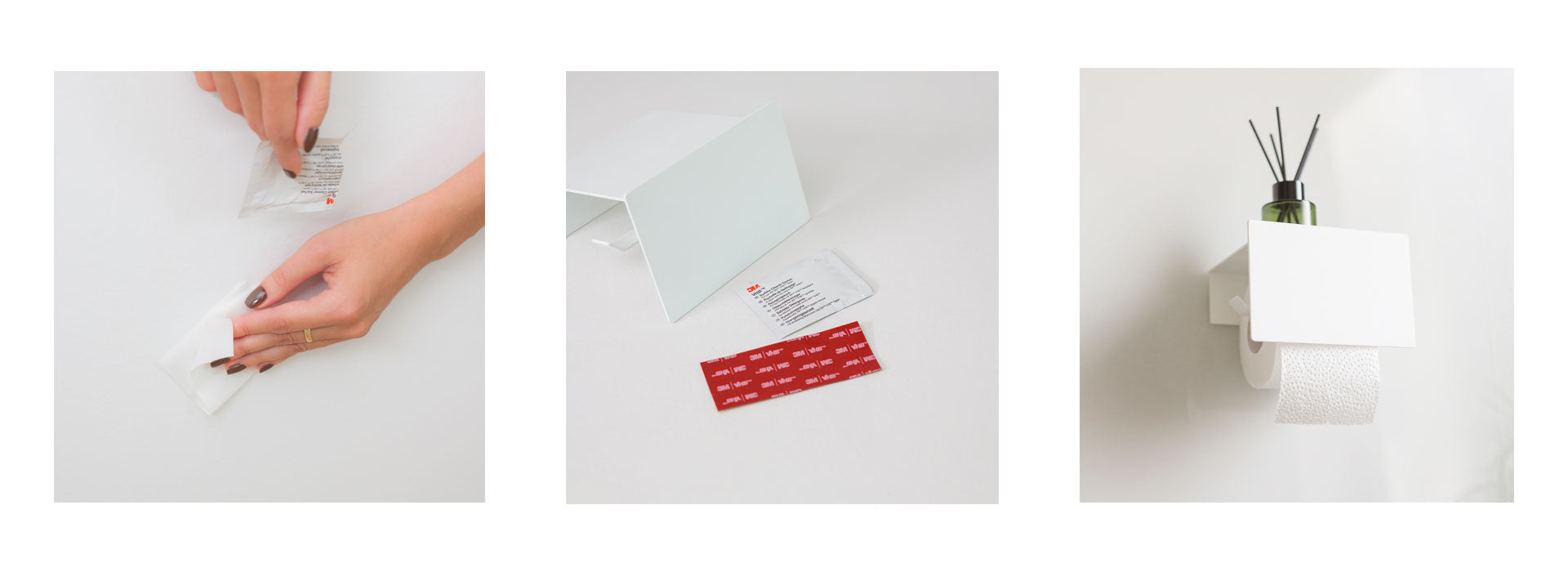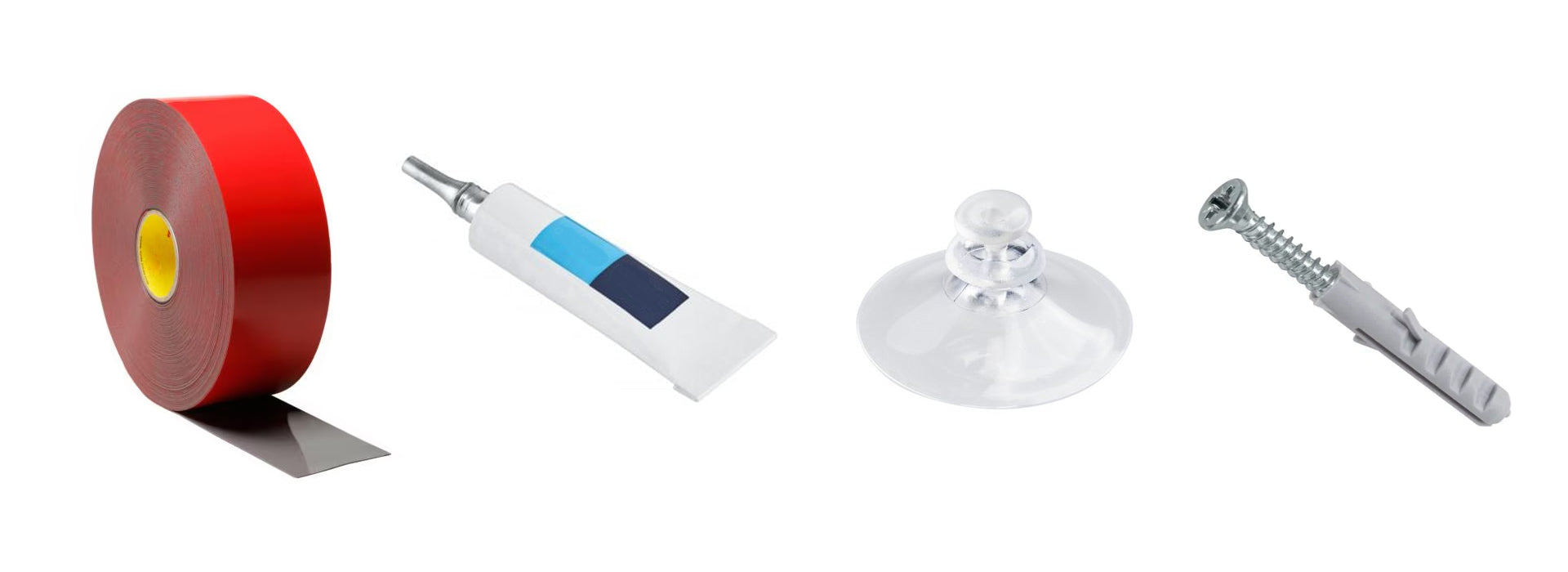
Finding the Optimal Height for Your Wall Shelf
Wall shelf placement can feel like a real headache. You don’t want to drill holes only to realize later the shelf is at the wrong height. If it’s too low, it crowds your furniture; too high, and it becomes impractical to use. The key is finding the right balance of function, safety, and aesthetics—a placement that works for your daily routine while enhancing the overall design of your space.
In this guide, we’ll share practical measurements, ergonomic principles, and design tips so you’ll know exactly how high to hang your shelves in your interior.

What Is the General Rule for Choosing the Correct Height?
Before reaching for the drill, take a moment to think about your layout.
Are you planning to install a single shelf or several stacked in a column?
- For a single shelf: As a starting point, most wall shelves look and function best when they sit within the eye-level zone — about 140–150 cm from the floor to the center of the shelf. This matches the eye level of an average adult standing in the room. At this height, decorative items are easy to see, and everyday objects are within reach — without forcing you to bend down or stretch uncomfortably.
-
For multiple shelves: Place the middle shelf at eye level, then arrange the others above and below it. Consider what you plan to display:
- Books and small décor → allow 25–30 cm between shelves.
- Plants or tall décor → allow 30–40 cm or more.
- Extra flexibility: Some shelves can be flipped or mounted in different orientations without re-drilling.
For example, the Vega modern wall shelf by Steelve can be installed either way up, making it an ideal choice for customizing your layout without drilling extra holes.
Pro Tip 1: Not sure if the height feels right? Cut a piece of cardboard the same size as your shelf and tape it to the wall. Step back and view it from different angles. This quick mockup lets you test the placement visually before drilling, saving time and avoiding mistakes.
Pro Tip 2: When in doubt, align the center of the shelf with eye level, not just the bottom or top edge. This creates the most balanced look.

Recommended Heights by Room
Use these guidelines as starting points — then adjust slightly to match your own space, style, and comfort.
Choosing the right height often depends on the room and the furniture around the shelf.
| Room | Placement | Recommended Height / Clearance | Why It Works |
|---|---|---|---|
| Living Room | Above a sofa | 20–30 cm above the sofa back | Creates breathing room while keeping décor visible |
| Above a TV stand/console | 30–40 cm above the TV | Prevents the shelf from “pressing down” on the television | |
| Kitchen | Above countertops | 40–50 cm above the counter | Keeps spices, cups, and utensils within easy reach |
| Upper storage | Up to 180 cm max | Provides extra storage; higher shelves for rarely used items | |
| Bathroom | Above the sink | 25–30 cm above faucet or mirror | Leaves space without blocking use or view |
| Above the toilet | 25–35 cm above cistern | Practical height, avoids cramped look | |
| Bedroom | Above bed/headboard | At least 30 cm clearance | Prevents a cramped or unsafe feeling above the bed |
| Above dresser/console | 20–25 cm above furniture | Balances proportions between shelf and furniture | |
| Side of bed (nightstand alternative) | 45–55 cm from floor, aligning with mattress top | Keeps essentials within easy reach while lying down |
Living Room — Above a sofa
Living Room — Above a TV stand/console
Kitchen — Above countertops
Kitchen — Upper storage
Bathroom — Above the sink
Bathroom — Above the toilet
Bedroom — Above bed/headboard
Bedroom — Above dresser/console
Bedroom — Side of bed (nightstand alternative)
Safety and Practical Considerations
When planning shelf placement, design is only half the story — safety and practicality are just as important. Keep these guidelines in mind:
- Maximum reach: Keep the highest shelf within 180–190 cm from the floor. Anything higher should be reserved for décor or items you rarely need.
- Minimum clearance from floor: Avoid installing shelves lower than 30–40 cm. Shelves this close to the ground look awkward, are hard to clean under, and rarely serve a useful purpose.
- Wall type matters: Heavy shelves require solid anchors. Drywall, plaster, tile, and concrete all need different fixing methods, so always match your mounting system to the wall material. At Steelve, every product comes with high-quality dowels, making installation secure and cost-effective.
- Weight capacity: The heavier the load, the sturdier and lower the placement should be. This reduces strain on fixings and minimizes the risk of accidents. Always check the product’s maximum load capacity for safe use.
Advanced Tips You Might Not Have Considered
- Children’s rooms: Lower shelves encourage independence and make books or toys accessible.
- For elderly users: Keep frequently used shelves between waist and shoulder height for safety.
- Multiple shelves: Vary vertical spacing (25–35 cm) depending on what you want to display — books, plants, or décor.
Proportions & design rules: Try the “one-third rule” — place shelves roughly one-third up the wall in tall rooms to create pleasing proportions.
Examples with Steelve Shelves
At Steelve, we design shelves that balance minimalist style with practical mounting — so you can enjoy both flexibility and durability in your interior.
- Vega minimalist wall shelf → Perfect when you’re looking for flexibility. The Vega can be flipped and reinstalled in a new orientation without re-drilling, making it easy to adapt your wall layout or create extra space. The same innovative feature applies to our Egeria shelf.
- Circe round shelf → An elegant choice for living rooms. Placed about 25 cm above the sofa back, it creates a balanced look while showcasing books or décor.
- Iris wall shelf → Ideal for kitchens. Installed around 45 cm above a countertop, it keeps cups, jars, or spices within easy reach without cluttering your work surface.
Choosing the right height for the right shelf turns simple storage into a piece of functional design.
Explore Steelve’s collection of minimalist wall shelves — crafted with invisible mounting systems and timeless finishes to fit perfectly, no matter the height.




